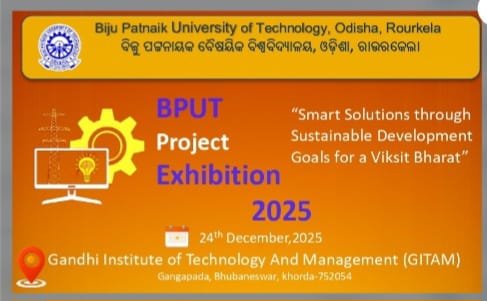
Mechanical Engineering is one of the oldest and most diverse engineering disciplines, encompassing a wide range of areas such as design, manufacturing, energy systems, robotics, automotive engineering, and aerospace engineering. At GITAM College, our department is committed to providing a comprehensive education that equips students with the knowledge, skills, and experiences necessary to excel in the field of mechanical engineering. The Department of Mechanical Engineering offers undergraduate that provide students with a strong foundation in core mechanical engineering principles, coupled with specialized knowledge in areas such as thermal engineering, fluid mechanics, materials science, and machine design. Our programs are designed to prepare students for successful careers in industry, research, and academia.
Dr. Soumyasri Sabyasachi Singh,
HOD, Department of Mechanical Engineering
The Department of Mechanical Engineering at GITAM College is dedicated to fostering excellence in education, research, and innovation in the field of mechanical engineering. With a rich history of academic achievement and a commitment to continuous improvement, our department aims to nurture future leaders and innovators who will make significant contributions to society. The Department of Mechanical Engineering offers undergraduate that provide students with a strong foundation in core mechanical engineering principles, coupled with specialized knowledge in areas such as thermal engineering, fluid mechanics, materials science, and design and manufacturing. Our programs are designed to prepare students for successful careers in industry, research, and academia. Graduates of the Department of Mechanical Engineering at GITAM College are well-prepared to pursue rewarding careers in diverse sectors such as automotive, aerospace, energy, manufacturing, robotics, and research and development. Our alumni have found employment in leading companies, government organizations, research laboratories, and academic institutions worldwide.
PSO1: Ability to identify, analyze and solve engineering problems in the domains of Design, Thermal and Manufacturing systems.
PSO2:Ability to apply their knowledge in principle of design and analysis, in execution of automation in mechanical system / processes.
PSO3: Ability to involve professionally in industries or as an entrepreneur by applying manufacturing and management practices.
PSO4: Develop simulation models of thermal and manufacturing systems using Computer aided analysis tools.
PEO1: To prepare mechanical engineering students with an outstanding knowledge of mathematical, scientific, engineering, technology, management, humanities, and various other interdisciplinary subjects for a successful career.
PEO2: To train the mechanical students with modern tools, technology, and advanced software in the field of mechanical engineering.
PEO3: To empower students with broad based knowledge to support the service industries, economic development and address social and mechanical engineering challenges of the society and also to take part actively in recent areas of research.
PEO4: To encourage the mechanical technocrats with leadership skills with high level of integrity and ethical values for team building and team work.
The department of Mechanical Engineering (ME) was established in the year 2009 with B.Tech program in ME with intake of 60, with due approval from AICTE and affiliated with Biju Patnaik University of Technology,Odisha. During this time, the department is expanded to offer three year Diploma Program in Mechanical engineeringwith intake of 60 with due approval from AICTE and affiliated with State Council of Technical Education and Vocational Training, Odisha
The department has 11 academic laboratories like FM&HM Lab, MOS Lab,ETD Lab,KDM Lab,AE Lab, MST Lab etc. the infrastructure and lab facilities are upgraded from time to time and provide good practical learning and innovative environment for the students and researchers. The department also has the followingcenters of excellence in the specialized areas in collaborations with leading industries like STPI, CTTC and other government organization.The main objectives of department are to provide:
The students are nurtured with a variety of active learning activities including and not restricted to class room teaching, presentations, video lectures but with MOOC courses, IIT Virtual Labs and from SWAYAM Portal.
The clubs under Department of Mechanical Engineering have different students’ body for conducting activities on career development, interpersonal and intrapersonal skills of students. These clubs organize Seminars, Quizzes, Industrial Visits, Paper / Poster Presentations, Group Discussions, Guest Lectures, Career Guidance, Tech fest etc.,with an objective to help students to pursue their hobbies and interests and to bring people together .
Student Chapters of various professional bodies like Indian Society for Technical Education (ISTE), andSolar Energy Society of India (SESI) to provide unique opportunities for networking , mentoring and bonding over common interests.
History Of Department :
B. Tech. (Mechanical Engineering)
M Tech.
Diploma
Vision :
A department of excellence in mechanical engineering to cater the real time needs of industries with ethical values.
Mission :
Program Specific Outcome’s (PSOs):
Program Educational Objectives
Departmental Advisory Board (DAB)
The Departmental Advisory Board (DAB) has been framed with the prime objective of remaining up to date with the latest requirements of the industry and offers such academic gaps as addon courses in collaboration with different industries.
The DAB is composed of members from eminent institutions as well as members from industry, alumni and members of faculty of the department. The present composition of the DAB is as follows
| SL.NO | NAME OF MEMBER | DESINGNATION | STATUS |
|---|---|---|---|
| 1 | Dr.S.S.Singh | Professor | Chairman |
| 2 | Dr.Sisirakanta Pattanaik | Asso.prof | Convenor |
| 3 | Dr.ArunKumarParida | Professor | Member |
| 4 | Dr. ShubhashreeNayak | Asso.prof | Member |
| 5 | Mr.AvijitNayak | Asst.prof | Member |
| 6 | Mr Sunil Kumar Satapathy | Asst.prof | Member |
| 7 | Mr. PrasannajitBoity | Asst.prof | Member |
Program Assessment and Quality Improvement Committee (PAQIC)
The departmental academic committee is responsible for smooth functioning and monitoring of all academic activities.
Composition
Members to the PAQIC (UG) will be opted covering each specialization of the department. In very small departments one or more faculty members of other departments may be opted by the HOD with approval of Dean of Academic. One or more external members may be opted by the Convener, PAQIC on specific occasions such as making the syllabus for value added courses. The tenure of the departmental academic committee shall be two years. The composition of the DAC shall need approval of the Principal. The present composition of the PAQIC is as follows
| SL.NO | NAME OF MEMBER | DESINGNATION | STATUS |
|---|---|---|---|
| 1 | Dr.S.S.Singh | Professor | Convenor |
| 2 | Dr.Sisirakanta Pattanaik | Asso.prof | Member |
| 3 | Dr.ArunkumarParida | Professor | Member |
| 4 | Dr. ShubhashreeNayak | Asso.prof | Member |
Roles and Responsibilities of PAQIC
The PAQIC will meet at least once in a month. Faculty mentors and other members of the faculty may be invited to meetings when necessary. The PAQIC will seek and review the reports of all course handling faculty and faculty mentors and submit its reports to HOD for remedial action if so needed. The PAQIC’s recommendations may, if situation so demands to be discussed and amended by a meeting of the total faculty in a department.
Course Expert Team (CET)
The course expert team is responsible in exercising the central domain of expertise in developing and renewing the curriculum and assessing its quality and effectiveness to the highest of professional standards.
The functions of the Course Expert Team are to:
| SL.NO | Course Specialization | Course | Name | Desingnation |
| 1 | Design Engg. |
| Mr. TANMAYA KUMAR BARIK | Ass.Proffessor |
| Mr. PRASANNAJIT BOITY | Ass.Proffessor | |||
| Mr. GOPINATH BARIK | Ass.Proffessor | |||
| Mr. AYASHKANTA JENA | Ass.Proffessor | |||
| 2 | Thermal Engg. |
| Dr. SOUMYASRI SABYASACHI SINGH | Ass.Proffessor |
| Mr. AVIJIT NAYAK | Ass.Proffessor | |||
| Mr. SUNIL KUMAR SATAPATHY | Ass.Proffessor | |||
| Mr. KISHAN DASH | Ass.Proffessor | |||
| 3 | PrductionEngg. |
| Dr. SISIRA KANTA PATTNAIK | Ass.Proffessor |
| Dr. ARUN KUMAR PARIDA | Ass.Proffessor | |||
| Mr. SATYAKAM ACHARYA | Ass.Proffessor | |||
| Dr. SUBHASHREE NAIK | Ass.Proffessor | |||
| 4 | Industrial Engg. |
| Mr. TANMAYA KUMAR BARIK | Ass.Proffessor |
| Mrs. SAPTARSHI DALEI | Ass.Proffessor | |||
| Mr. ASISH KUMAR SAHOO | Ass.Proffessor |
Departmental Members in Different Committees of Institutes
The following committees are formed for attaining the best overall performance of the department in academic, co-curricular and extra-curricular activities:
| SL.NO | NAME | POSITION | Name Of the committe |
|---|---|---|---|
| 1 | Dr.S.S.Singh | Chairman | ACADEMIC COMMITTEE |
| 2 | Dr. Ajoya Kumar Pradhan | Chairman | FINANCE COMMITTEE |
| 3 | Dr.TruptimayeePatanaik | Convenor | GRIEVANCE REDRESSAL COMMITTEE |
| 4 | Mrs. ItishreePatro | Chairman | GOVERNING BODY |
| 5 | Dr.Sisirakantapattanaik | Chairman | RESEARCH COMMITTEE |
| 6 | Dr.TruptimayeePatanaik | Chairman | WOMEN PROTECTION COMMITTEE |
| 7 | Dr.SukantSahoo | Chairman | ST/SC COMMITTEE |
| 8 | Dr. Ajoya Kumar Pradhan | Chairman | PURCHASE COMMITTEE |
| 9 | Dr. Ajoya Kumar Pradhan | Chairman | BUDGET COMMITTEE |
| 10 | Dr.Tusharkanta Das | Chairman | LIBRARY COMMITTEE |
| 11 | Dr.Biswojit Swain | Chairman | COMMITTEE FOR STUDENT SOCIETY |
| 12 | Dr.S.S.Singh | Chairman | PROGRAMME ASSESSMENT COMMITTEE |
| 13 | Dr.ArunkumarParida | Chairman | STUDENT COUNCIL COMMITTEE |
| 14 | Dr.S.S.Singh | Chairman | DEPARTMENTAL ADVISORY BOARD : |
| 15 | Dr.ArunkumarParida | Chairman | FEEDBACK COMMITTEE |
| 16 | Dr.ArunkumarParida | Chairman | STUDENT WELFARE COMMITTEE |
| 17 | MrsSanghamitraMohapatra | Chairman | INTERNAL COMPLAINT COMMITTEE |
| 18 | Dr. Ajoya Kumar Pradhan | Chairman | ANTI-RAGGING COMMITTEE |
| 19 | Mr. Sukanta Kumar Sahoo | Chairman | SCHOLARSHIP COMMITTEE |
| 20 | Mr. Avijit Nayak | Chairman | ANTI-RAGGING SQUAD |
| 21 | Dr. Ajoya Kumar Pradhan | Chairman | RTI CELL |
| 22 | Dr.Biswojit Swain | Chairman | HR CELL |
| 23 | Dr.Biswojit Swain | Chairman | TRAINING AND PLACEMENT CELL |
| 24 | Dr. Ajoya Kumar Pradhan | Chairman | IQAC CELL |
| 25 | Dr.SisisraKantaPattanaik | Chairman | ALUMNI CELL |
| 26 | Dr.Biswojit Swain | Chairman | ENTREPRENEURSHIP CELL |
| 27 | Dr.Biswojit Swain | Chairman | SOCIETY OF SOCIAL SERVICE & SOCIAL AWARENESS |
| 28 | Dr.SisisraKantaPattanaik | Chairman | R� & D PROJECT COMMITTEE |
| 29 | Dr. Ajoya Kumar Pradhan | Chairman | DISCIPLINARY COMMITTEE |
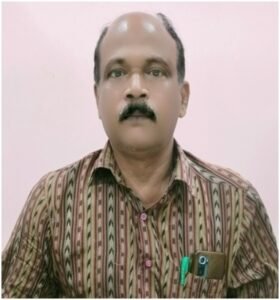
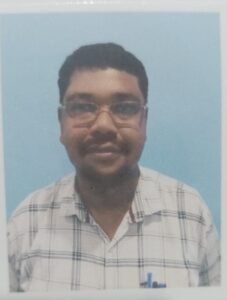
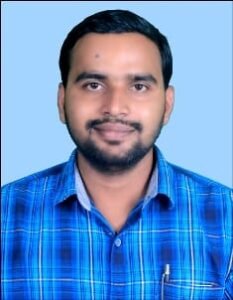
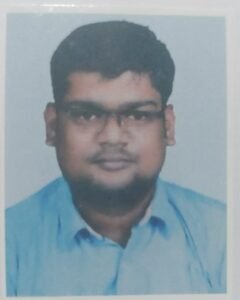
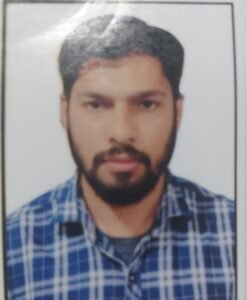
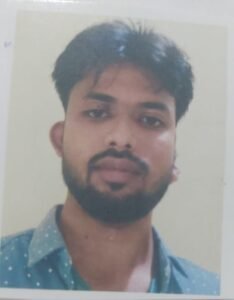
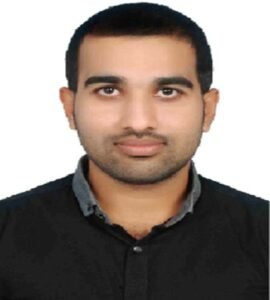
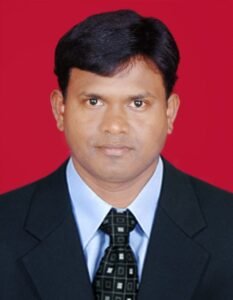
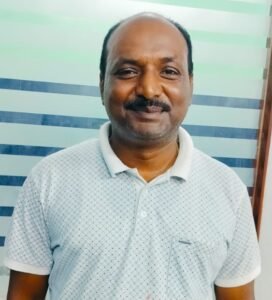

Research Supervisors for Universities
The following faculty are recognised as Research (PhD) Supervisors / Co-Supervisors / External Supervisors:
| Sl.no | Name | College | Research | Phd guiding | Phd produced |
|---|---|---|---|---|---|
| 1 | Dr. Ajoya Kumar Pradhan | GITAM,BHUBANESWAR | 1 | ||
| 2 | Dr. Bijay Kumar Mohapatra | GITAM,BHUBANESWAR | 1 | ||
| 3 | Dr. Prakash Chandra Sahu | GITAM,BHUBANESWAR | 1 | ||
| 4 | Dr. Smruti Ranjan Nayak | GITAM,BHUBANESWAR | 1 |
